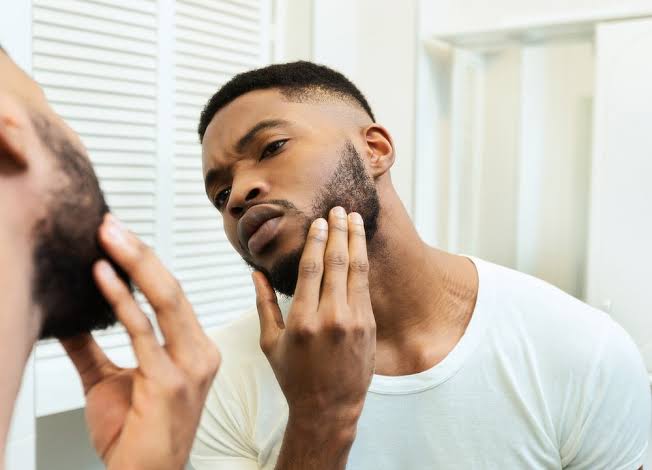
If you have ever tried to grow a beard, you have experienced beard itch. Some have itchier beards than others.
The question is, why do beards itch in the beginning? And what can I do to reduce the irritation and itch?
Beard itch can have many causes including poor hygiene, dry skin, ingrown hairs, acne breakouts and excessive grooming of the beards using soaps and other products, which can irritate the skin.
Sometimes beard itch can even be a sign of a much deeper issue, such as a fungal or bacterial infection.
Keep your face and beard clean to prevent oil, dirt, and bacteria buildup. Try the following to keep your beard from itching:
- Bathe or shower at least once a day or wash your beard with warm water every day.
- Use a face or beard wash that’s specifically meant for beard care. Use beard conditioner with jojoba or argan oil to keep your beard hair naturally oily.
- Do a patch test when using a new beard oil or conditioner, as some products are comedogenic and may lead to acne breakouts.
- Each time you shave or trim your beard, use a natural aftershave wash or lotion, such as one containing tea tree oil or aloe vera. Avoid products that contain too many harsh, synthetic chemicals.
- When you first grow out a beard, if possible, try to avoid shaving or trimming to give your hair time to grow out beyond the follicles, which can prevent irritation and skin or follicle damage.
Medications’
Depending on your skin condition, your doctor might use medicated ointments, creams, or lotions. Common medications include:
- Ointment or cream containing lactic acid and urea. This will help to treat dry skin.
- Mupirocin (Bactroban) to fight bacterial infections.
- Antifungal cream to treat fungal infections.
- Corticosteroid cream if the cause is noninfectious.
- Hydrocortisone, clobetasol (Cormax), or desonide (Desonate) can be prescribed to treat seborrheic eczema if the inflammation is noninfectious.
- Ketoconazole (Nizoral) if the cause of seborrheic eczema is a fungal infection.
- Glycolic acid (Neo-Strata) to treat pseudofolliculitis barbae.
- Topical antifungal therapy to treat mild cases of tinea barbae. Oral antifungal treatment, such as itraconazole or terbinafine, is also useful.
You can also take certain types of medications orally. Treatment options will depend on what your doctor feels is the best therapy for your specific condition.
Surgeries and procedures
If the itchiness become chronic, occurring with frequent bouts of infection and inflammation, a doctor may suggest laser hair removal.
Alternately, a doctor may recommend a procedure that involves making incisions to drain boils or carbuncles. Carbuncles, also known as skin abscesses, are clusters of boils that can cause or aggravate infections.
Photodynamic (light) therapy is another treatment option. This can be effective in combating infection and inflammation of hair follicles.




